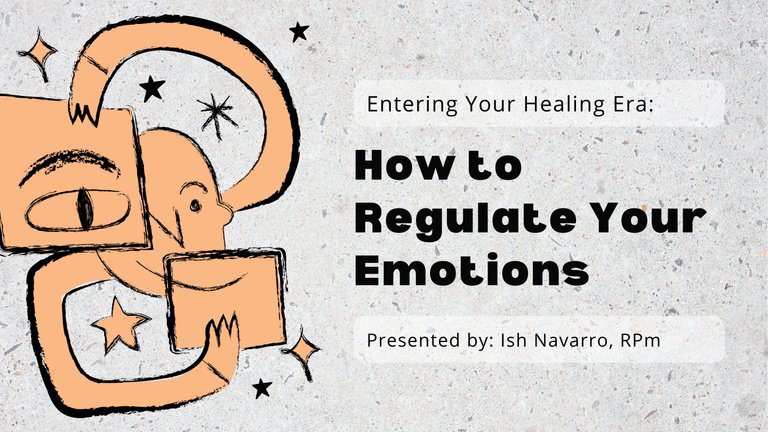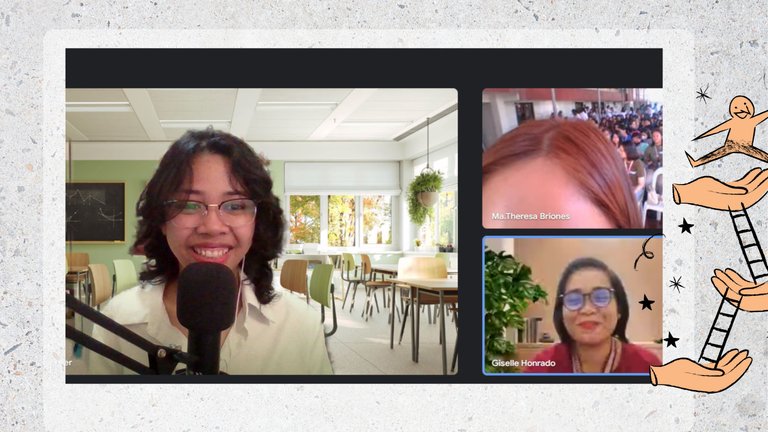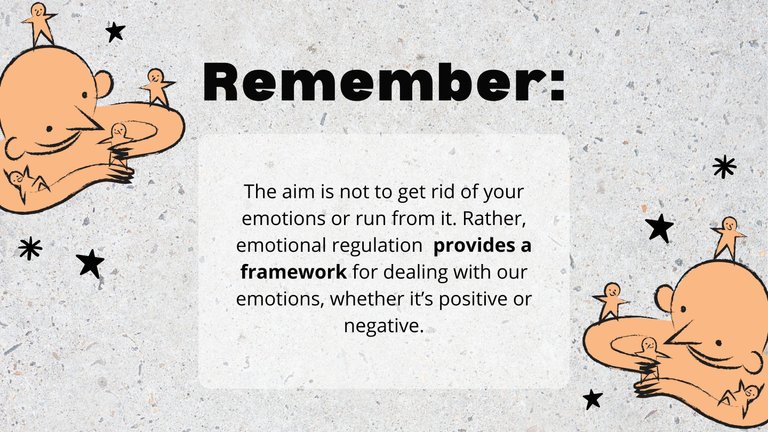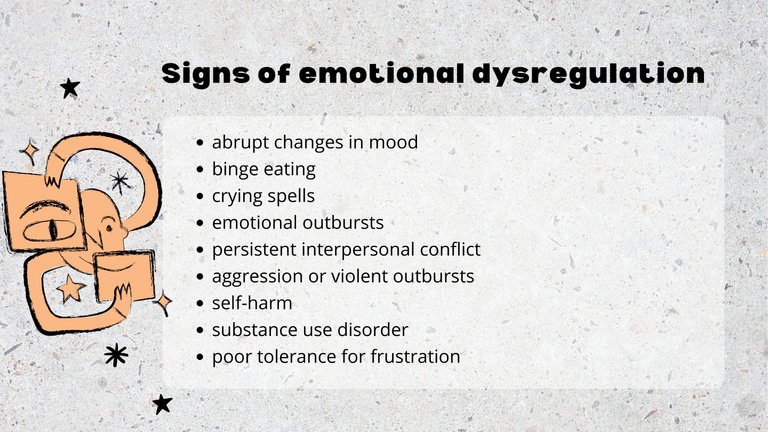Hi, Hivers! I hope you’re all doing well. This cold season, we’re called to burrow ourselves underneath warm blankets and limit our bath times, as nostalgia and deep reflection swirl the freezing air. Personally, I just wanted to sleep through the start of the new year 😴 but being a mental health advocate just doesn’t permit that. Hahaha.

My mental health advocacy continues despite the freezing weather. Last January 25, I was invited to facilitate a webinar on emotional regulation at Lyceum Northwestern University for Psychology students. I wanted to share what we discussed so that you, too, can start the year with more healing.

What is Emotional Regulation?
According to APA (2018), it is “the ability of an individual to modulate an emotion or set of emotions.”
- requires conscious monitoring
- using techniques such as learning to construe situations differently in order to manage them better
- changing the target of an emotion (e.g., anger) in a way likely to produce a more positive outcome
- recognizing how different behaviors can be used in the service of a given emotional state.
Emotional regulation can look like…
- Pausing before you do or say something harmful
- Listening to music
- Spending time with your pets
- Going out with your friends
- Drinking alcohol
How about you? In what ways do you regulate your emotions when you feel them rise up?

Remember, the aim is not to get rid of your emotions totally. I don’t think it’s possible for anyone to not feel anything at all. We get emotional at different points in time during different situations for different reasons. Later on, you’ll learn how important it is to embrace our emotions for what they truly are - the most basic communicators of our inner world. So what’s the goal of emotional regulation?
It’s about gaining a framework for dealing with those emotions that supports our emotional well-being and spiritual growth. Therefore, we all have emotional systems where we process emotions.
Ask yourself: Does my emotional system help me improve my life and relationships? Is it set up with judgment and shame? Who’s in charge of my emotional system - the people who continue to put me down? Or is it your wounded inner child who doesn’t trust anyone with their emotions?
Emotional Regulation Helps Improve our EQ
Generally, when we speak about intelligence, it’s our ability to learn new concepts and apply your knowledge to solve problems. That means Emotional intelligence (EQ) is the ability to learn about your emotions and apply that wisdom to the world around you.
Daniel Goleman, psychologist and author who popularized EQ, shared that emotional regulation helps you have emotional reactions that are in proportion to the given circumstances. This ensures you don’t just have emotional outbursts which lead you to saying things you don’t really mean. You can picture the image of regret once you already said something hurtful to people you care about. While connections are repairable, the hurtful words you said are something you could no longer erase.
Emotional regulation is a must in any place, whether that’s at work, in school, home, or social events. For instance, your boss criticizes you in front of your co-workers. If you know how to emotionally regulate, you can maintain your composure and then politely excuse yourself to process your emotions in a safer environment. In contrast, if you’re emotionally dysregulated, you can shout at your boss and strom out of the office. You could receive a complaint from the HR, or worse, lose your job.
Learning how to pause and think before you act are essential components in emotional regulation. If you want to be more emotionally regulated, you must enhance the following skills as well:
- Conflict resolution skills
- Communication skills
- Coping strategies
As you could observe, they are centered around interpersonal skills that ensure you can effectively communicate your needs and understand others. In turn, you can develop a higher level of EQ and research has shown that you will have improved mental health and relationships, higher job satisfaction, and academic performance.
So when was the last time you had an emotional reaction? What did you learn about yourself during that moment?
If you answered “I don’t know” or “I don’t care,” then I urge you to take a closer look at how you deal with stress. There may be a sign of emotional dysregulation somewhere, which could be the reason why we’re numbed out of our emotions or emotions-averse. Our distress and psychological pain can be great storytellers of what’s going on internally. Follow your pain and allow it to show you the stories we tell ourselves.

BEFORE: When I’m stressed, I tend to shut down. This tells me that my mind is on overdrive, needing to cool off from the heightened mental activity. It's like it won't process any new information until my stressor (e.g. being in conflict with someone, going to the hospital, processing government papers, etc.) is out of sight. I would put it off until the very last minute. I hate confrontations and I don't know how to communicate my needs. I feel ashamed. I feel like I'm failing at life.
My emotional system is entangled with trauma, I know that now. The cause of this emotional pattern comes from how I modeled my parent’s coping strategy to stress: Sweeping it under the rug. Not talking about it. Since there’s no space to express what bothered them, their emotions were just bottled up, and then it would be followed up by an emotional outburst from a minor incident. As a kid who had big and intense emotions, I learned to keep it all in, but with nowhere to go, my emotions just remained internalized in my mind as insignificant, a sign of weakness, and a burden to my family. A decade later of an emotional system built on shame and invalidation, my emotional dysregulation developed into multiple mental breakdowns and panic attacks.
Emotions need to be expressed, and it surely found a way through my body and mind, from tensed muscles to feelings of helplessness. No surprise, I was diagnosed with Acute Stress Disorder alongside depression and Generalized Anxiety Disorder (GAD).
What truly helped me was acknowledging that there is so much stigma around emotional health and I have to do something about it. Like mental health, emotions are misunderstood and there are multiple socioeconomic cultural factors as to why. To name a few, poor implementation of the mental health law leads to low mental health awareness, so that means people are not getting the right information and access to mental health care.
People may rely on false sources of information like “Psychology Says” or your neighbor who is a master of parenting because they hit their kids and now they are “disciplined,” or from cultural beliefs passed down to shut down any discourse on mental health or in our case, emotions. People may assume that emotional reactions are abnormal because you just have to be happy all the time. Having emotions means a lack of faith in God. These come from a place of misunderstanding emotions after we’ve been colonized for centuries, a time when emotions are unsafe and could be fatal. Now, we’re called to heal these wounds.
What do we need to do? We need integrated, intersectional, and community-based steps to implement our mental health law, RA 11036. If we have more people taking a stand for better mental health care (lawyers, teachers, employees, etc.), more factual and research-based mental health information that is translated for all sectors of the public, more government agencies increasing the funding for psychological facilities, and youth-centered mental health programs, then we all have a better chance of being emotionally regulated.
To become a nation with high EQ that knows how to regulate emotions is to be a healed country. It’s a hard and grueling process, but we have to try to work together.
Emotions may feel icky to deal with, but brave the discomfort. Steady your heart. Help is available and we’ll discuss what you can do in the present for better emotional regulation in PART 2!
Thank you for taking the time to read! I appreciate you 😊
📸: Photos edited from Canva.com
📧: ishthewoundedhealer@gmail.com
💻: https://ishnavarromentalhealth.carrd.co/
Have a healing day guys! 💜